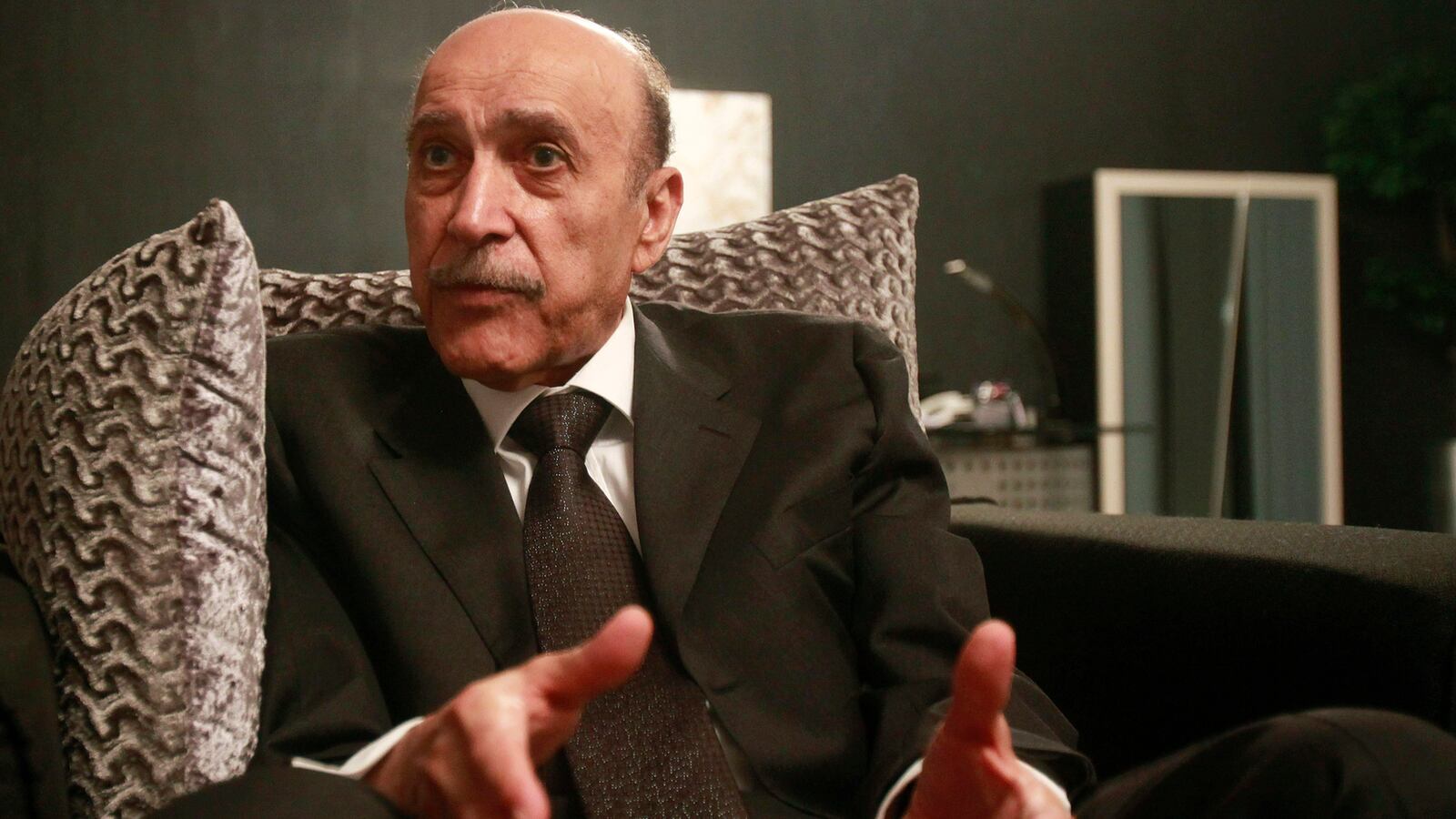In less than a day, two of the Arab world’s most renowned spooks are dead.
Hours after the assassination of Syria’s former intelligence chief Assef Shawkat in a suicide bombing, the longtime head of the Egyptian mukhabarrat (intelligence) Omar Suleiman has died, sparking finger-pointing and conspiracy theories on the streets and tweets over whom to blame.
Suleiman, 76, who briefly served as the first and last vice president under Hosni Mubarak during last year’s revolution, suffered from cardiac problems triggered by lung disease, state-run Middle East News Agency reported. His health took a turn for the worse about three weeks ago when he traveled to a Cleveland hospital for treatment, MENA reported. An aid told Reuters that he “was fine” shortly before his death.
“Hell is having a mukhabarrat party,” read one Tweet shortly after the news went viral.
During the 2011 uprisings that sought to topple Mubarak, Suleiman became an internationally recognized figure as the newly-named vice president with decades of hands-on experience on national security issues. However, long before the revolution, he was a household name across the Middle East for his role as head of Egypt’s infamous intelligence apparatus. Born in the Upper Egypt town of Qena, Suleiman enlisted in the army in 1954, and later received training at the Soviet Union’s Frunze Military Academy. He served in the military during Egypt’s 1962 involvement in the North Yemen war, as well as in the 1967 and 1973 Arab-Israeli wars. In 1986, he was named the deputy head of Egypt’s General Intelligence Service and climbed through the ranks, reaching the top spot in 1993.

Suleiman worked closely with the Clinton administration to implement a rendition program for the kidnapping and transfer of suspected terrorists for trial. The program took on a new significance following the September 11th attacks and bore a new face, with transfer and trial often involving interrogation and torture. He also worked with Israel and the Palestinians, trying to broker reconciliation between Hamas and Fatah—although whistleblower WikiLeaks revealed that Suleiman allegedly attempted to block Hamas from taking part in the 2006 Palestinian parliamentary elections.
“He was a black box of information which I think will die with him,” said Nabil Fahmy, founding dean of the School of Public Affairs at the American University in Cairo and a former Egyptian ambassador to the United States. Suleiman “was a fundamental and important part of ensuring stability and security for the regime. He was also a close confidant of the president and was often sent as a trouble-shooter.”
He was as much detested as he was respected. With the Muslim Brotherhood, the former regime’s longtime foe now ruling the country, Suleiman’s death is not so much mourned or celebrated by the Egyptian populace as it is questioned—although he is said to have left Brotherhood-related domestic issues to the Interior Ministry and state security. Several key members of the Mubarak government remain behind bars but Suleiman was never implicated in any of the crimes linked to many senior members of the defunct regime, including Mubarak and former Interior Minister Habib El-Adly—both serving life sentences for their role in protester deaths last year.
“It’s a shame he died as an ex-vice president and not as a murderer and a devil who was torturing people,” said Cairo native Omar Abdel-Kader, 37. “I hope they don’t give him a formal funeral.”
Suleiman’s image popped up on posters across Tahrir Square last year after he was named vice president, his name becoming synonymous with that of the Mubarak regime. On February 11, 2011, he addressed the nation in a brief televised speech announcing the resignation of Mubarak, his message sparking euphoria across the Arab world.
However, it wasn’t immediately clear whether Suleiman himself would retain power, prompting confusion and criticism among reformists. However, he did defer power to the military, and disappear in the months that followed, making a comeback this year as a presidential hopeful. Experts say that the Muslim Brotherhood felt particularly threatened by Suleiman's candidacy after he made a rare public remark that the formerly outlawed group may have been behind the security lapse during the revolution and attacks on police stations and prisons across the country. When, in April, the body overseeing Egypt's presidential election disqualified him as a candidate, he vowed to fight the ruling. That day would never come.
Some in Egypt believe that anything is possible. “I don’t trust [Suleiman] but definitely, it’s suspicious,” said Ahmed Kamal, 45, a government employee. “Right away, we said that the Brotherhood may have played a role. They finally have power in their hands and they don’t want anyone to take that away.”




